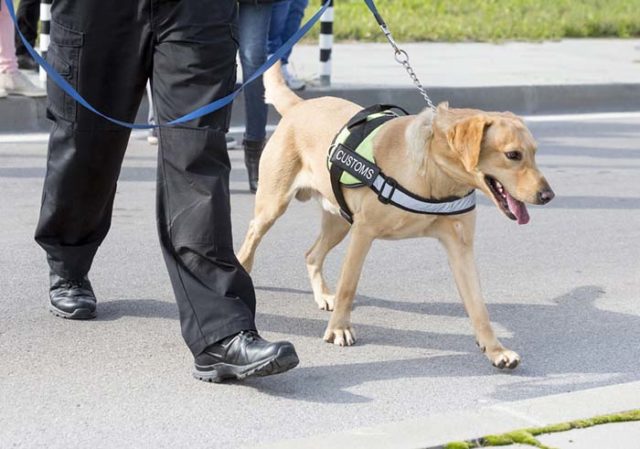
Scientists are working with the UK police forces to help police dogs more accurately identify human remains.
Researchers at the University of Leicester's Department of Chemistry, led by PhD student Jonathon Brooks, are studying the organic compounds present during decomposition and using dogs to sniff out those compounds to ascertain crucial identifying information.
Volatile organic compounds are those given off when biological matter decomposes.
Scientists are trying to determine which specific chemicals the dogs detect and whether it’s just one compound or a combination of compounds that the dogs smell.
Researchers are working with professionals to use these substances in training victim recovery police dogs who are working to detect human remains.
RELATED: 15 Best Dog Breeds for Police Work
The Science Behind Decomposition
Though different tissue types will decompose at different rates, researchers have shown that they still share similar VOC profiles.
However, the environment the tissues are exposed to can significantly alter the VOC profile.
This suggests that the samples the police forces use are not fully accurate representations of real buried human remains.
When human remains break down, they release a large variety of molecules. The dogs need to be able to recognize these various molecules with their noses.
The team is working with police dogs to train them to recognize these molecules and is using various analytical techniques to measure the substances that are released during decomposition.
Why This Is Progress
The researchers are working closely with the University Hospitals of Leicester and many UK police forces to establish how the data can best be used to assist in future criminal investigations.

This research project is the only one of its kind within the UK to use multidimensional chromatography to analyze the decomposition.
Multidimensional chromatography helps to better separate complex chemical compounds by passing samples through two different separation stages.
Not Enough Human Remains to Study
A limitation the team faces is that in the UK, they are only allowed to use animal samples for cadaver dog training.
This is due to legislation.
However, collaborators in Australia recently opened a human decomposition facility, which will help scientists advance their knowledge of the phenomenon as it pertains to humans specifically.
Protocols are being introduced that will allow police forces to use human samples that have been donated to science.
This will serve to increase the dog’s understanding and effectiveness in detecting human remains.
These protocols have yet to be implemented, and it is currently hard to know whether there will be a consistent human tissue supply or not.
As terrifying as this all sounds, this is very noble work. Death is a normal part of life.
Those humans donating their bodies to science are unknowingly working with dogs toward better-identifying remains for the loved ones of those who have experienced a tragic, untimely, or mysterious death.
READ NEXT: How the Study of Dog DNA is Improving Our Understanding of Humans












